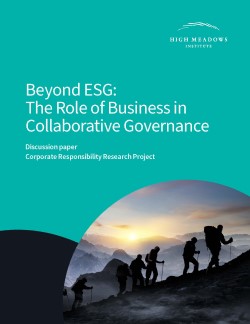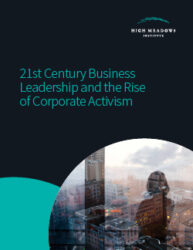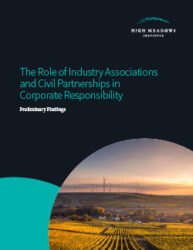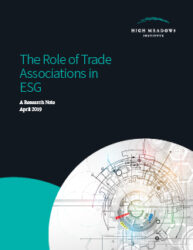The 21st century has brought with it profound societal challenges, from disruption to our social and political institutions to global systemic-level threats such as pandemics and climate change. In the face of these challenges, our 20th century governance systems are proving increasingly inadequate and unable to control their economic future, steward the environment and ensure the social well-being of their citizens.
In this context, both the private sector and the civil society sector, working with and alongside governments, must now be recognized as active participants in 21st century governance. Governing and managing the transition from an extractive-consumptive economic model to a sustainable-regenerative model will require extraordinary leadership from all sectors of society and nowhere is leadership more critical than from the private sector. In addition to their financial and human capital resources, the private sector brings experience in management innovation that is critical in developing a framework for 21st century governance.
Beyond ESG: The Role of Business in Collaborative Governance will bring together corporate leaders and partner organizations to explore four key roles for the private sector in 21st century governance and the challenges they pose for business. These include:
- Moral leadership
- Self-regulation
- Delivery of public good and services
- Business model transformation
If you or your organization are interested in partnering with HMI to work with us on exploring these themes, please get in touch through our contact form.






